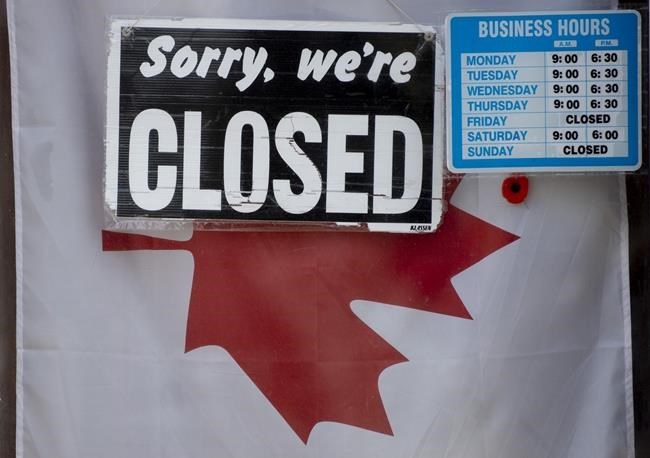An intensifying labour shortage is rippling through the economy, forcing businesses to curtail operations, reduce hours and in some cases, euthanize livestock.
The situation is a result of a chronic worker shortage worsened by the crush of new COVID-19 cases forcing many into isolation.
School closures have also left some workers scrambling for child care and unable to go into work.
The result is rising employee shortages, prompting airlines to cancel flights, drugstores to close early, restaurants to shutter or move to takeout only and municipalities to warn of delayed waste collection.
At a slaughterhouse in Quebec, the worker shortage became so extreme in recent days it opted to euthanize thousands of chickens that couldn't be processed.
Exceldor Co-operative said in a statement that rising COVID-19 infections and a significant shortage of personnel have forced the company to resort to "humane euthanasia."
It blamed the protracted worker shortage on federal delays processing temporary foreign worker applications.
Meanwhile, some provinces have tried to ease staffing woes by shortening isolation periods, allowing people to return to work sooner.
Yet the sheer number of new daily cases caused by the highly transmissible Omicron variant continues to leave many confined to their homes and businesses struggling to remain open.
Even those that remain open are facing a scheduling nightmare as mounting unplanned absences — on top of shifting public health restrictions — make operating difficult.
"Omicron has resulted in more unplanned absences, not to mention complications from sudden government restrictions," Retail Council of Canada spokeswoman Michelle Wasylyshen said.
A surge of people unable to work and changing public health measures "throw schedules that were often planned weeks in advance upside down," she added.
Some businesses have responded to the disruption by drafting new plans for how to operate during the latest wave, while some must alter hours or close altogether.
The Ballroom, a large entertainment venue in downtown Toronto, opted to shutter even before Ontario's government-mandated closure.
"People were calling in sick and it certainly made it challenging to schedule," said director of operations Barry Taylor. "We were short-handed every day."
After previous lockdowns, he said he was only able to hire back about 40 per cent of the venue's staff.
"We never fully recovered," he said. "People won't come back to this industry."
The current COVID-19 wave is also causing staffing shortages at essential retailers and services.
Halifax Regional Municipality, for example, warned of delayed waste collection in some areas due to "resourcing challenges as a result of COVID-19."
Drugstore chain Jean Coutu said on its website some of its stores may need to modify hours to ensure essential services are maintained.
Marie-Claude Bacon, a spokeswoman for Jean Coutu's parent company Metro Inc., said the health and safety of employees and customers has been the company's priority since the beginning of the pandemic.
"As absenteeism has been fluctuating over the course of the last 20 months, we continue to make the necessary staffing adjustments as need be at store and (distribution centre) levels to minimize impact on our operations," she wrote in an email.
Finance Minister Chrystia Freeland said businesses that must close or cut back opening hours due to labour shortages may be eligible for support through various federal government lockdown programs, including the Hardest-Hit Business Recovery Program
"If they have a revenue fall, for whatever reason — and a shortage of workers could be that reason — they could be covered," she told reporters Wednesday.
This report by The Canadian Press was first published Jan. 5, 2022.
Brett Bundale, The Canadian Press


